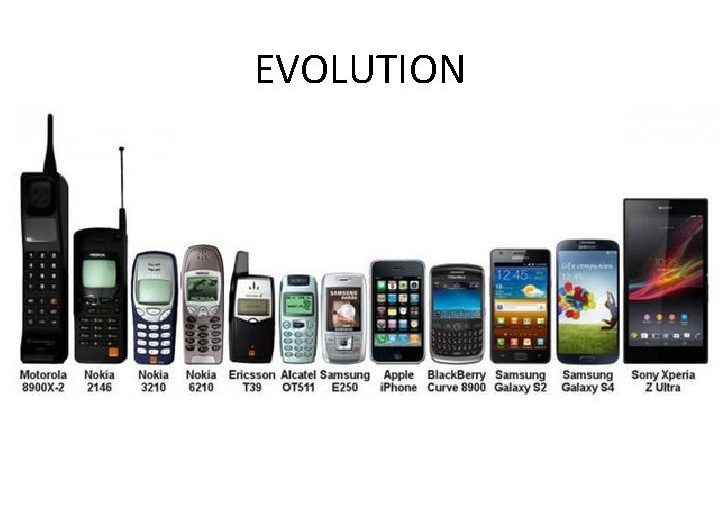
According to historical dialectical materialism, human beings reached to the current technological advancement through evolutional change after many centuries.
The human society evolved from the epoch of stone age to slave owning system, to feudalism and to the current industrial capitalism.
In these stages the technology utilized by human beings transformed from using human and animal labor as energy sources to the current nuclear-powered energy which advanced digitized industrialization.
Abiyot Bayu (PhD) is the Director of Digital Transformation in the Ministry of Innovation and Technology.
While he met the local media recently said that, automation is the first modern technology utilized to enhance production and productivity which affects all sectors.
The second one is artificial intelligence which comprises machine learning, big data restoring, processing and many others. The products of various social medias tools, communications through internet are categorized in this sector.
The third one is the data management technology which is the newest and unless it is stored and analyzed in proper way, advancing technology is unthinkable. In relation to data management there is a technology known as cloud competing has a tremendous impact in scoring technological advancement.
The fourth is directly related with energy technology that focusses on storing and developing and it stress on utilizing alternative energy sources which are very important.
No energy means no development, production, service provision and other activities.
The other technology which is categorized as fifth is biotechnology.
This technology touches various sectors. Because through biological elements technological advancement is realized and various industrial products can be yield.
Synthetic biology, genome and gene coding are part and parcel of the technology. It also enhances production and productivity in unprecedent manner.
The 6th one is related with communication which is known as fifth generation technology. It has a great impact on innovation. Technology also defines countries development level.
As to Abiyot, historically industrial revolutions passed through four phases.
Now we are in the fourth industrial revolution which began in 2011GC.
The first industrial revolution broke out in 1784 with the innovation of steam engine in Great Britain. Before this innovation there were wheeled transport technologies pulled by animal power served as means of transportation.
The second revolution began in 1870 with the introduction of electric city in the same country. Such innovation gave way for expansion of mass production all over the world.
It also paved the way for surplus commodity production which targeted to penetrate and exploit the world market.
The third industrial revolution began in 1969 which is related with the creation of computer and automation.
The two-apparatus helped to rise productivity in factories and computers began to utilized to make design in metallurgy.
The fourth industrial revolution began since 2011 which is known as “the era of doing things with internet.”
As mentioned above artificial intelligence was also introduced in this period.
It brought a dramatic change in terms of technology throughout the world.
The industrial revolution not only accelerate production in industries but also its implementation brings impacts on ecosystem of productive forces and changes the teaching learning system of the technology and the public relations. The research system in the educational institutions also had been changed which again induced the creation of new demand for new innovation.
When asked why Ethiopia failed to cop up with the mentioned revolutions Abiyot said that, in general not only Ethiopia but also Africa at large failed to cope up and utilize the revolutions for social change because historically the nations did not recognize what was going on around the world and their level of development also hampered them not to do so.
The backwardness of the continent in terms of new technology and innovation attributed to such circumstances.
When the first industrial revolution was going on in 1784 in Europe, Ethiopia was indulged in anarchy in the era of princes. In 1870 when the second industrial revolution was going on, Ethiopia was at the end of the era of princes which gave way to the assumption of Emperor Tewodros the 2nd to the throne.
At this stage, the nation was not recovered from the havoc of the political upheaval of the prince’s era.
After the over throw of Emperor Tewodros from the throne Atse Teklegiorgis and Emperor Yohannes came to power consecutively.
During the second revolution Ethiopians were unable to resolve their difference through dialogue as the result, they missed the opportunity.
It is remembered that, the Japan Maji dynasty could able to cop up with the second revolution and transformed the nation from feudal socio-economic order in to industrial society led by electoral political system.
When the third industrial revolution broke out in 1969, the world was divided in to two camps which is the socialist and the capitalist that manifested itself by cold war.
At that time, Ethiopia was burdened with its own internal affairs and the predominance of feudal socio-economic system did not gave way to look out ward for adopting new system.
The fourth industrial revolution which began in 2011 is going on and must exert our energy not to miss the chance. Some claim that now time has come for Africa because developing countries could get a chance to achieve technological advancement and economic growth through artificial intelligence and data sense. Through utilizing the technology, the youth can transform the socio- economic landscape in to prosperity with industry-based economy.
Currently, most technological barriers which hampers economic growth are removed. countries can easily adopt new technologies through Information Communication apparatus be it in engineering or innovative sciences.
Opportunities are created to expand knowledges.
Ethiopia as a country of youth can exploit such opportunities for technological advancement and in this regard, the country planned to achieve digitalized economy by 2025. In the last one year, the implementation has taken place. The plan was ratified by the Council of Ministers.
It examines that where the place of Ethiopia is in terms of digital technology as compared to the world. It also indicates to where Ethiopia must go in this regard and rectifies the nation home grown economic reform for meeting the goal.
BY ABEBE WOLDEGIORGIS
THE ETHIOPIAN HERALD OCTOBER 15/2021





